-
 Bitcoin
Bitcoin $117500
2.15% -
 Ethereum
Ethereum $3911
6.19% -
 XRP
XRP $3.316
10.79% -
 Tether USDt
Tether USDt $1.000
0.01% -
 BNB
BNB $787.2
2.24% -
 Solana
Solana $175.2
4.15% -
 USDC
USDC $0.9999
0.00% -
 Dogecoin
Dogecoin $0.2225
8.40% -
 TRON
TRON $0.3383
0.28% -
 Cardano
Cardano $0.7868
6.02% -
 Stellar
Stellar $0.4382
9.34% -
 Hyperliquid
Hyperliquid $40.92
7.56% -
 Sui
Sui $3.764
7.63% -
 Chainlink
Chainlink $18.48
10.66% -
 Bitcoin Cash
Bitcoin Cash $582.1
1.88% -
 Hedera
Hedera $0.2601
6.30% -
 Avalanche
Avalanche $23.33
4.94% -
 Ethena USDe
Ethena USDe $1.001
0.02% -
 Litecoin
Litecoin $122.3
2.04% -
 UNUS SED LEO
UNUS SED LEO $8.969
-0.27% -
 Toncoin
Toncoin $3.339
0.86% -
 Shiba Inu
Shiba Inu $0.00001287
4.30% -
 Uniswap
Uniswap $10.43
7.38% -
 Polkadot
Polkadot $3.861
5.08% -
 Dai
Dai $1.000
0.02% -
 Bitget Token
Bitget Token $4.513
3.41% -
 Monero
Monero $267.7
-6.18% -
 Cronos
Cronos $0.1499
4.14% -
 Pepe
Pepe $0.00001110
5.15% -
 Aave
Aave $284.9
8.28%
How to transfer funds in HTX contracts? Is there a handling fee for transfer?
To transfer funds in HTX contracts, log in, select the contract, enter the amount, choose the destination, and confirm; be aware of potential handling fees.
May 03, 2025 at 01:28 am
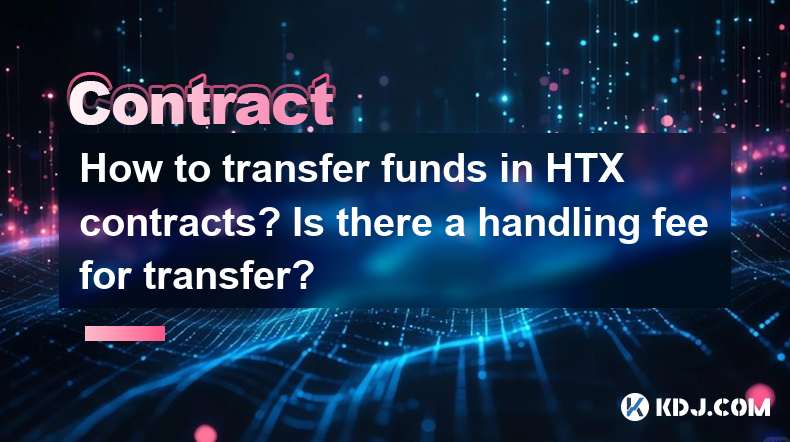
How to Transfer Funds in HTX Contracts? Is There a Handling Fee for Transfer?
Transferring funds in HTX contracts involves navigating through the platform's user interface and understanding the fee structure associated with such transactions. This article will guide you through the process of transferring funds in HTX contracts and discuss whether there are handling fees for these transfers.
Understanding HTX Contracts
HTX contracts are financial agreements executed on the HTX platform, which is a popular cryptocurrency exchange. These contracts can include futures, options, and other derivatives. Transferring funds within these contracts is essential for traders looking to manage their positions or move assets between different accounts or wallets.
Preparing for a Transfer
Before initiating a transfer, it's crucial to ensure that your account is set up correctly and that you have sufficient funds available. Here are the steps you need to take:
- Log into your HTX account: Use your credentials to access your account on the HTX platform.
- Navigate to the contracts section: Find the section dedicated to contracts on the HTX platform, usually labeled as "Futures" or "Contracts."
- Check your available balance: Ensure that you have enough funds in your account to cover the transfer amount and any potential fees.
Initiating the Transfer
Once you've prepared your account, you can proceed with the transfer. Follow these detailed steps:
- Select the contract: Choose the specific contract from which you want to transfer funds. This could be a futures contract or any other derivative product available on HTX.
- Access the transfer option: Look for an option labeled "Transfer" or "Withdraw" within the contract's interface. This is usually found in the account or wallet section.
- Enter the transfer amount: Specify the amount of funds you wish to transfer. Make sure to double-check the amount to avoid any errors.
- Choose the destination: Select where you want to transfer the funds. This could be another account on HTX, an external wallet, or another contract.
- Review and confirm: Carefully review all the details of the transfer, including the amount and the destination. Once you are satisfied, confirm the transfer.
Transfer Fees on HTX
When transferring funds in HTX contracts, it's important to be aware of any associated fees. HTX typically charges a handling fee for transfers, though the exact fee can vary based on several factors:
- Type of contract: Different contracts may have different fee structures. For example, futures contracts might have different fees compared to options contracts.
- Transfer amount: Larger transfers might incur higher fees, though some platforms offer tiered fee structures that can reduce costs for larger transactions.
- Destination: Transfers to external wallets or other exchanges might incur higher fees compared to internal transfers within the HTX platform.
To find out the specific fee for your transfer, you can:
- Check the fee schedule: HTX usually provides a fee schedule on their website or within the platform's interface. Look for this information before initiating your transfer.
- Use the fee calculator: Some platforms offer a fee calculator that can help you estimate the cost of your transfer based on the amount and destination.
Verifying the Transfer
After initiating the transfer, it's crucial to verify that the funds have been successfully moved to the intended destination. Here's how you can do it:
- Check the transaction history: Navigate to your account's transaction history or transfer logs to confirm that the transfer has been processed.
- Verify the destination account: Log into the destination account or wallet and check if the transferred funds have arrived.
- Contact customer support: If you encounter any issues or discrepancies, reach out to HTX's customer support for assistance.
Common Issues and Troubleshooting
While transferring funds in HTX contracts is generally straightforward, you might encounter some common issues. Here's how to troubleshoot them:
- Delayed transfers: If your transfer is taking longer than expected, check the transaction status on the HTX platform and ensure that you've entered all details correctly.
- Incorrect transfer amount: If you've entered the wrong amount, contact HTX customer support immediately to see if the transfer can be canceled or corrected.
- Fees higher than expected: If the fees charged are higher than anticipated, review the fee schedule and ensure that you've understood the fee structure correctly. If discrepancies persist, reach out to customer support.
Frequently Asked Questions
Q: Can I transfer funds between different types of HTX contracts?
A: Yes, you can transfer funds between different types of HTX contracts, but be aware that the fee structure might vary depending on the specific contracts involved.
Q: How long does it typically take for a transfer to be processed on HTX?
A: The processing time for transfers on HTX can vary, but internal transfers are usually processed instantly. Transfers to external wallets or other exchanges might take longer, typically ranging from a few minutes to several hours.
Q: Are there any minimum or maximum transfer limits on HTX contracts?
A: Yes, HTX may impose minimum and maximum transfer limits depending on the type of contract and the user's account status. You can find these limits in the platform's terms of service or by contacting customer support.
Q: Can I cancel a transfer after it has been initiated on HTX?
A: Once a transfer is initiated, it may not be possible to cancel it. However, if you act quickly, you might be able to request a cancellation through HTX customer support, though this is not guaranteed.
Disclaimer:info@kdj.com
The information provided is not trading advice. kdj.com does not assume any responsibility for any investments made based on the information provided in this article. Cryptocurrencies are highly volatile and it is highly recommended that you invest with caution after thorough research!
If you believe that the content used on this website infringes your copyright, please contact us immediately (info@kdj.com) and we will delete it promptly.
- Stablecoins, Hong Kong, and On-Chain Finance: Navigating the Regulatory Maze
- 2025-08-08 12:30:12
- Tron's Sell-Off Spurs Altcoin Shift: What's Next for TRX?
- 2025-08-08 08:30:12
- Euler, DeFi, and Coinbase: A New York Minute on the Latest Buzz
- 2025-08-08 12:30:12
- RUVI Presale: Is the Growth Potential Real?
- 2025-08-08 09:10:12
- Sleep Token's US Takeover: Thornhill Rides the 'Even In Arcadia' Wave
- 2025-08-08 08:30:12
- FTT Token's Wild Ride: Creditor Repayments vs. Market Drop - A New Yorker's Take
- 2025-08-08 07:10:12
Related knowledge
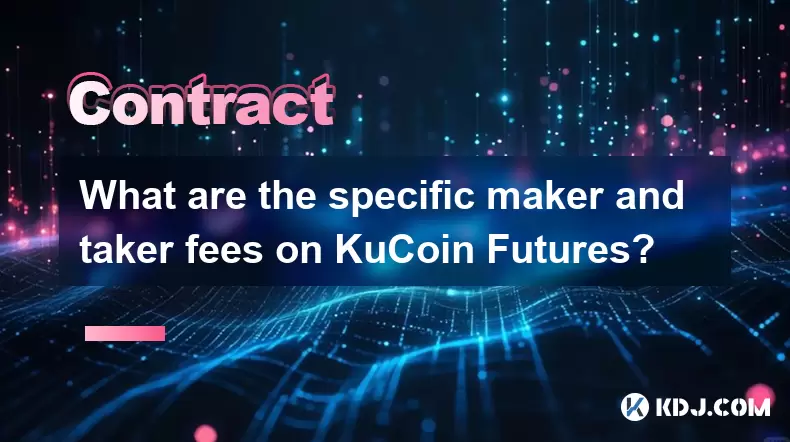
What are the specific maker and taker fees on KuCoin Futures?
Aug 08,2025 at 08:28am
Understanding Maker and Taker Fees on KuCoin FuturesWhen trading on KuCoin Futures, users encounter two primary types of fees: maker fees and taker fe...

What is the maximum leverage available on KuCoin Futures?
Aug 08,2025 at 10:21am
Understanding Leverage in KuCoin Futures TradingLeverage in KuCoin Futures allows traders to control a larger position size using a smaller amount of ...
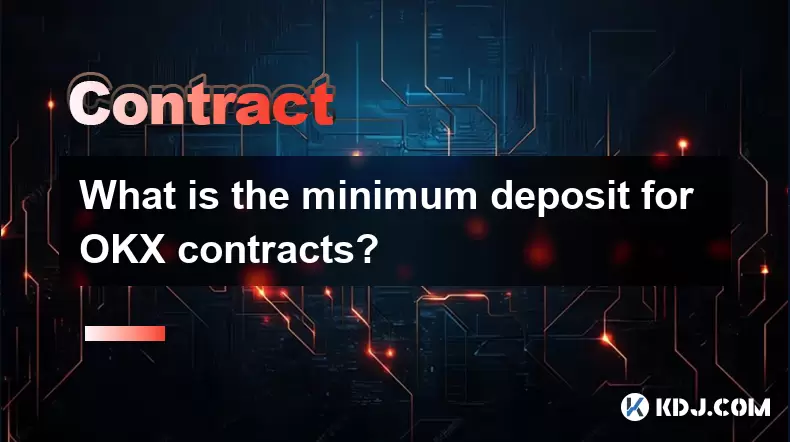
What is the minimum deposit for OKX contracts?
Aug 08,2025 at 07:00am
Understanding OKX Contract Trading BasicsOKX is one of the leading cryptocurrency derivatives exchanges, offering a wide range of perpetual and future...
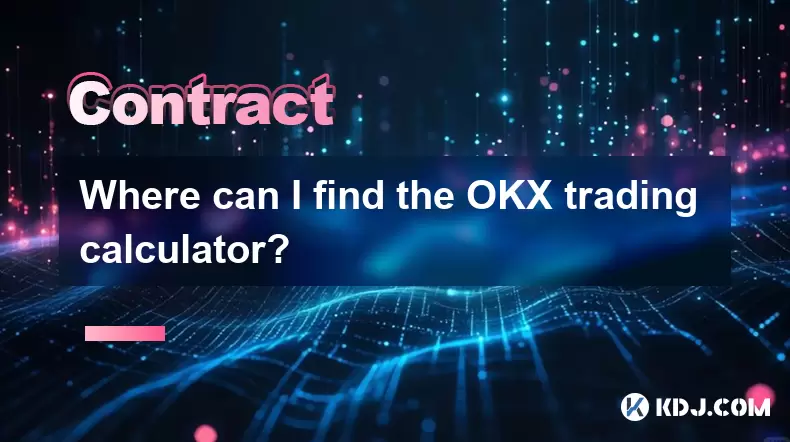
Where can I find the OKX trading calculator?
Aug 08,2025 at 07:49am
Understanding the OKX Trading Calculator FunctionalityThe OKX trading calculator is a powerful analytical tool designed to assist traders in estimatin...
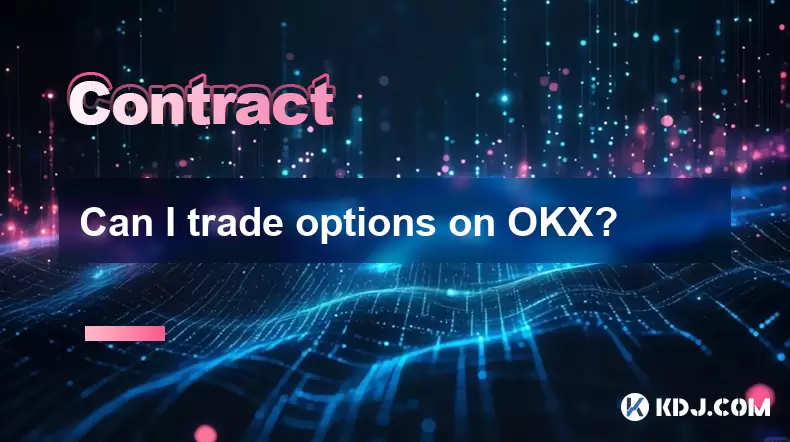
Can I trade options on OKX?
Aug 08,2025 at 11:01am
Understanding Options Trading on OKXYes, you can trade options on OKX. OKX is one of the leading cryptocurrency derivatives exchanges that offers a de...
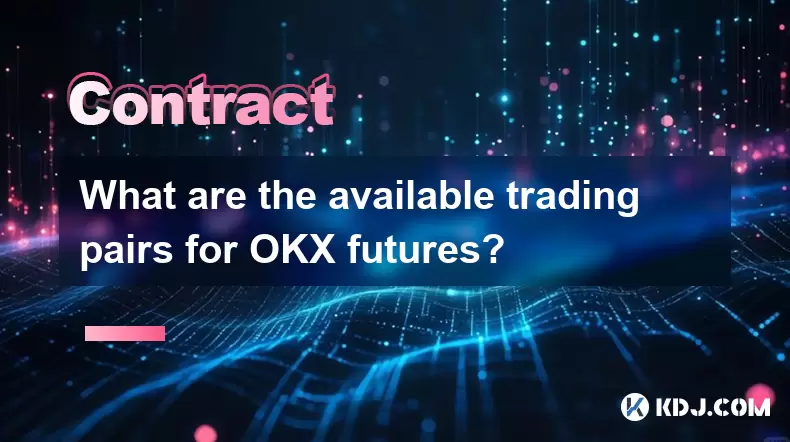
What are the available trading pairs for OKX futures?
Aug 08,2025 at 08:49am
Understanding OKX Futures Trading PairsOKX is one of the leading cryptocurrency derivatives exchanges, offering a wide range of futures trading pairs ...

What are the specific maker and taker fees on KuCoin Futures?
Aug 08,2025 at 08:28am
Understanding Maker and Taker Fees on KuCoin FuturesWhen trading on KuCoin Futures, users encounter two primary types of fees: maker fees and taker fe...

What is the maximum leverage available on KuCoin Futures?
Aug 08,2025 at 10:21am
Understanding Leverage in KuCoin Futures TradingLeverage in KuCoin Futures allows traders to control a larger position size using a smaller amount of ...

What is the minimum deposit for OKX contracts?
Aug 08,2025 at 07:00am
Understanding OKX Contract Trading BasicsOKX is one of the leading cryptocurrency derivatives exchanges, offering a wide range of perpetual and future...

Where can I find the OKX trading calculator?
Aug 08,2025 at 07:49am
Understanding the OKX Trading Calculator FunctionalityThe OKX trading calculator is a powerful analytical tool designed to assist traders in estimatin...

Can I trade options on OKX?
Aug 08,2025 at 11:01am
Understanding Options Trading on OKXYes, you can trade options on OKX. OKX is one of the leading cryptocurrency derivatives exchanges that offers a de...

What are the available trading pairs for OKX futures?
Aug 08,2025 at 08:49am
Understanding OKX Futures Trading PairsOKX is one of the leading cryptocurrency derivatives exchanges, offering a wide range of futures trading pairs ...
See all articles

























































































